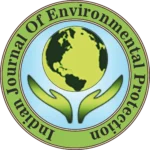IJEP 43(2): 134-141 : Vol. 43 Issue. 2 (February 2023)
Pinar Temocin1*, Ghulam Dastgir Khan2, Noriyuki Kawano1 and Yuichiro Yoshida2
1. Hiroshima University, The Center for Peace, Hiroshima – 739 8511, Japan
2. Hiroshima University, The IDEC Institute, Hiroshima – 739 8511, Japan
Abstract
Solid waste management (SWM) has become one of the most important and discussed topics in India. The municipalities, as a sole agency, can struggle to effectively manage solid waste. Therefore, communities in India have taken the initiative to turn waste into socio-cultural and economical resources. This study on SWM focuses on community involvement in Kozhikode, Kerala and the public-private partnership in N-ward, Mumbai, Maharashtra. The proactive measures adopted by the central, state and municipal government bodies in Kerala and Mumbai were considered as they highlight the importance of effective waste management and community participation in decentralized waste planning and public-private partnerships for improving the profile of waste management issues. Qualitative research methods were used to identify successful local approaches for sustainable development through effective and well-organized public participation, engagement and social inclusion to improve their waste management profile and behaviour. The data analysis and findings of this study provide a two-fold contribution to SWM. First, an empirical investigation was conducted on the SWM practices across two different regions of the country (Kerala and Mumbai). Second, recommendations were formulated to improve waste management, considering the representative cases of Kerala and Mumbai.
Keywords
Community engagement, India, Solid waste, Sustainable local development
References
- Hird, M.J. 2017. Waste, environmental politics and disengaged publics. Theory Culture Soc., 34(2-3):187-209.
- Sajid, M., et al. 2018. Integrated plastic solid waste management (ISWM) system based on 3R principle and resources conservation and GHG emissions. Pakistan Engineering Congress.
- Zhou, H., et al. 2014. Classification and comparison of municipal solid waste based on thermochemical characteristics. J. Air Waste Manage. Assoc., 4 (5).
- Brittas, A. and P. Ganesan. 2021. Centralized or decentralized waste management? The bewildered bureaucracy and the politics of waste governance in Kerala. National Institute of Urban Affairs, New Delhi and Administrative Staff College of India, Hyderabad. OTB-2 conference.
- Annepu, R. 2014. Demanding proper treatment : Waste protests in India. Isonomia. Available at : http://www. isonomia.co.uk/?p=3540.
- Simon, A.M. 2008. Analysis of activities of community based organizations involved in solid waste management, investigating modernized mixtures approach : The case of Kinondoni Municipality, Dar es Salaam, Tanzania, M.Sc. Thesis. Wageningen University, The Netherlands.
- Aggarwal, M. 2019. India’s megacities, Mumbai and Delhi, sitting on a pile of waste. Available at : https://india-mongabay.com/2019/10/indiasme-gacities-mumbai and-delhi-sitting-on-a-pile-of-waste.
- Mishra, S., et al. 2017. Solid waste management in Mumbai metropolitan region (MMR):Current practices and future opportunities. In the urban environmental crisis in India: New initiatives in safe water and waste management (chapter 11).
- Mehta, Y.D., Y. Shastri and B. Joseph. 2018. Economic analysis and life cycle impact assessment of municipal solid waste (MSW) disposal : A case study of Mumbai, India. Waste Manage. Res., 36 (12):1177-1189.
- Rathi, S. 2006. Alternative approaches for better municipal solid waste management in Mumbai, India. Waste Manage., 26(10):1192-200.
- Iyer, H. 2016. Case study of Mumbai: Decen-tralised solid waste management. Procedia Env. Sci., 35:101-109.
- Chatterjee, M. 2019. Waste management Mumbai. Green practices. Available at: https://greenpr-actices.in/blog-post/waste-management mumbai/.
- Ferronato, N., et al. 2017. Waste management in developing countries : A case study of environmental contamination. UPB Sci. Bull., 79(2):185-196.
- Dutta, A. and W. Jinsart. 2020. Waste generation and management status in the fast expanding Indian cities : A review. J. Air Waste Manage. Assoc.
- Srinivasan, K. 2006. Public, private and voluntary agencies in solid waste management: A study in Chennai city. Economic and Political weekly. pp 2259-2267.
- Ganesan, P. 2017. Landifll sites, solid waste management and people’s resistance : A study of two municipal corporations in Kerala. Int. J. Env. Studies. DOI: 10.1080/00207233.2017.1374076.
- Kanth, A. 2019. Kerala staring at ecological disaster as 3,176 tonnes of waste dumped everyday. New Indian Express. Available at: https//www. new Indian express.com/states/kerala/2019/dec 31/kerala-staring-at ecological disaster-as-3176-tonnes-of-waste-dumped-everyday-2082936.html.
- Kozhikode District Population India Growing. Available at: htts://www.indiagrowing.com/Kerala/Kozhicode_District.
- Kumar, S., et al. 2017. Challenges and opportunities associated with waste management in India. Royal Soc. Open Sci., 4(3):160764.
- Russel, D. 2015. New environmentalism of Kerala for sustainablity. OIDA Int. J. Sustain. Develop., 8(6):73-78.
- Solid waste Management Initiatives, Local Self Government Department, Government of Kerala. Available at: http://sanitation.kerala.gov.in/wp-content/uplods/2019/01/NGTRegional-Monitoring-Committe-review-kochi-0-25.01.19. pdf.
- Suchitwa Mission. 2019-2020. Annual report.
- 36 Facts about Kerala-The land of coconut trees and backwaters. Available at: https;//www.holidify. comp/pages/facts-about-kerala-446. html.
